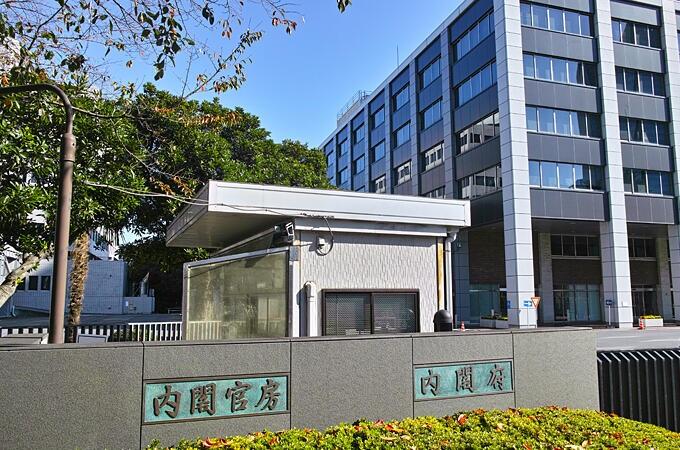On June 4, the Japanese government approved the Integrated Innovation Strategy 2024, which outlines priority items for the budget of the next fiscal year. Three enhancement measures were announced: a comprehensive strategy for key technologies, strengthening collaboration from a global perspective, and enhancing competitiveness while ensuring safety and security in the field of AI. Prime Minister Fumio Kishida said: "The next Science, Technology, and Innovation Basic Plan is the first step toward making Japan a leader in the creation of science and technology in the Reiwa era. I ask Minister Takaichi and the other ministers concerned to work together to implement the policy with a sense of urgency."

Science, technology, and innovation are the driving force behind economic growth and are becoming increasingly important in solving social issues and responding to disasters. Meanwhile, the battle for leadership in advanced science and technology is intensifying as the global security environment becomes increasingly severe, including in Ukraine and Palestine. Under these conditions, it is important to further enhance research capabilities, industrial competitiveness, and responses to economic security from a global perspective. The Strategy has set a course to strengthen cooperation with the international community, particularly allies and like-minded countries such as the G7 and countries in the Global South including ASEAN and India.
Within Japan, automation and labor saving through AI and robotics are urgently needed amid growing shortages, and preparation for and response to frequent disasters are urgent issues, leading to an acceleration in the social implementation of technology. The three enhancement measures will promote the development of core technologies that could be game changers in key areas such as fusion and quantum technologies, which will form the basis for new industries, and will promote research and development through integration with other strategic fields. Moreover, a domestic industrial base will be established through the early creation of use cases and enhancement of the functions of bases and hubs, and promoting innovation through startups and other initiatives will be accelerated.
Industry, academia, and government will work together to develop and secure human resources who will be responsible for industrialization, market development, and research and development. The Strategy will also lead international rulemaking in strategic fields and enhance coordination with economic security. Additionally, the Strategy will enhance the coordination between science, technology, and innovation and economic security policies, promote strategic research and development, including international cooperation and collaboration, and prevent technology outflow. Furthermore, resources will be actively utilized, not only within Japan but also from a global perspective, and strategic collaboration will be promoted through the creation of a hub for international brain circulation and participation in the top circles of international science.
With regard to enhancing the field of AI, the Strategy will accelerate innovation in and through AI, ensure the safety and security of AI (governance, safety considerations, countermeasures against falsehoods and misinformation, intellectual property, and so on), and promote international collaboration and coordination (international collaboration based on the results of the Hiroshima AI Process, etc.). In addition, the Strategy will continue the ongoing efforts to strategically promote advanced science and technology, strengthen the foundation of knowledge (research capabilities) and human resource development, and create an innovation ecosystem. For example, to secure research time, the Strategy will further enhance research capabilities through basic funding such as operating expense grants for national university corporations and competitive research funds including Grants-in-Aid for Scientific Research and consider reforming the system to make Grants-in-Aid for Scientific Research more challenging and international. The Strategy will promote the horizontal expansion of best practices to improve research environments in the Fusion Oriented Research or disruptive Science and Technology and the regularization of the Project. JST's Strategic Basic Research Programs will provide continuous support to outstanding early to mid-career researchers.
Members of the Council for Science, Technology and Innovation made the following comments: Mutsuko Hatano (Professor of Electrical and Electronic Engineering, School of Engineering at Tokyo Institute of Technology): "Now that secondary technologies with precedents can be efficiently developed using AI, the creation of knowledge, which is the driving force of innovation, is extremely important. Doctoral graduates are at the core of this process. They are the key to a virtuous circle of knowledge, and they actually have a hand in solving global issues. However, they face challenges in their career paths. I urge the government to continue to support the expansion of opportunities for PhDs."
Hiroaki Suga (Professor, Department of Chemistry, School of Science, the University of Tokyo, after his lecture in the U.S. during Golden Week): "The director of a research institute at a university hospital asked me, 'Are there any postdocs in your laboratory who would like to have their own laboratory?' Apparently, an outstanding researcher can get 2 million dollars (about 300 million yen) in start-up funding. This is not limited to the United States. I would like to ask the Japanese government to understand the international competition for talent and to continue investing in projects such as the Global Startup Campus and the Universities of International Research Excellence."
Hiromichi Shinohara (NTT advisor): "In the strategic promotion and social implementation of important fields in Japan, it is crucial to integrate multiple technical fields and knowledge from the humanities and social sciences. The importance of data collaboration among companies and collaboration between different fields to enable the creation of new value has been pointed out. However, such collaboration is not enough. It is important that the Integrated Innovation Strategy is one that fosters collaboration in various fields."
Mamoru Mitsuishi (President, Science Council of Japan): "From the perspective of researchers in the field, as discussed at the Science Council of Japan's general meeting in April, it is important to promote the realization of a research environment in which researchers can devote themselves to research, based on a review of the measures taken to date, to enhance research capabilities."
This article has been translated by JST with permission from The Science News Ltd. (https://sci-news.co.jp/). Unauthorized reproduction of the article and photographs is prohibited.




